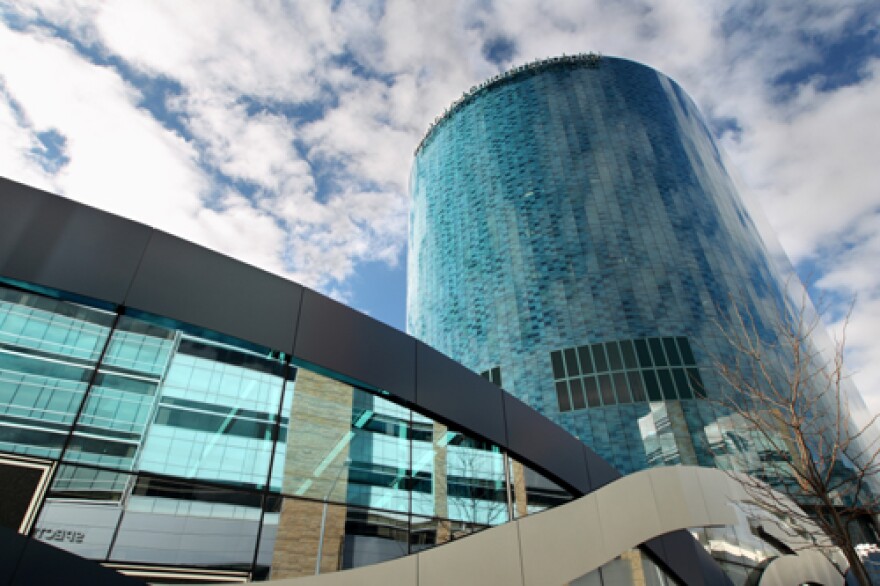
Leaders at children’s hospitals across the state say they are stretched to capacity with a surge in cases of RSV.
The respiratory syncytial virus, usually referred to as RSV for short, is common and usually mild. But doctors say it can be especially severe in infants and older adults.
At Helen Devos Children’s hospital in Grand Rapids, RSV cases have quadrupled in the past two weeks. And that's putting a strain on the entire hospital. On Wednesday, hospital leaders said they had 42 pediatric patients in intensive care, compared to a usual number of 24.
“We will find a place for your child if they need to be hospitalized,” says Dr. Erica Michiels, who works in the ER at Devos Children’s Hospital. “But it may take a little longer, and they may have a roommate.”
Michiels says it’s not common practice to put children two-to-a-room at the children’s hospital, but the hospital has had to start the practice as rooms have filled up.
Across the state at Mott Children’s Hospital in Ann Arbor, leaders say they’re at capacity as well.
“We have never seen a surge in pediatric respiratory viruses like this before,” said Luanne Thomas Ewald, chief operating officer at Mott and Von Voigtlander Women's Hospital, in a statement. “Our hospital is 100% full.”
Mott leaders say they’ve seen 46% more cases of RSV this year compared to last year. And there’s worry as cases continue to rise that hospitals could soon be hit by an outbreak of another common seasonal virus - the flu.
“We’re really, really hoping that our RSV surge has settled out before we start to see a surge from influenza,” said Dr. Michiels. “And I think that’s going to really affect what the rest of the winter looks like at children’s hospitals across the state of Michigan and really across the nation.”
Medical leaders statewide are urging parents to take precautions to help stop the spread of both viruses, so that hospitals don’t become more overwhelmed.
“We are urging Michiganders to have a plan for their families this respiratory season to help prevent hospital overcrowding and prevent outbreaks of respiratory illnesses using the tools available,” said Dr. Natasha Bagdasarian, the state’s chief medical executive, in a statement from the Michigan Health & Hospital Association. “This includes getting available vaccines, staying home if unwell, having a supply of masks at home, covering coughs, washing your hands often and finding out if you are eligible for treatment options if you do become unwell.”
Doctors are also telling parents not to bring their children to the emergency room unless it truly is an emergency.
Dr. Michiels says most children with RSV can recover at home.
But she said parents should be watching for whether infants are getting enough food to make wet diapers. And she said parents should monitor their child’s breathing.
“If their breathing seems really fast, once a second or faster, or you’re seeing that they’re tugging in under their ribs, and that their belly’s really moving hard with every breath, that’s a kid who really needs to be evaluated,” Dr. Michiels said.
She also said to look for other signs that the baby could be struggling to get oxygen, especially if their color starts to change, and appear bluish.
C.S. Mott's Children's Hospital in Ann Arbor said infants may need emergency care if they show any of these signs:
- "Visible respiratory distress or using additional muscles to breathe – flared nostrils, visible neck muscles, or blueness in the face or lips
- "Fevers (>100.4) in babies under <60 day of age
- "Fussy, irritable, or lethargic moods
- "Less eating or drinking than usual – for younger children and babies, this can also result in fewer diapers or less frequent bottle and breastfeeding "
Health care leaders stress that, for now, they still have the capacity to care for children who need the help. But they’re asking everyone to take extra precautions and not go to the hospital unnecessarily while doctors and nurses deal with the RSV surge.




